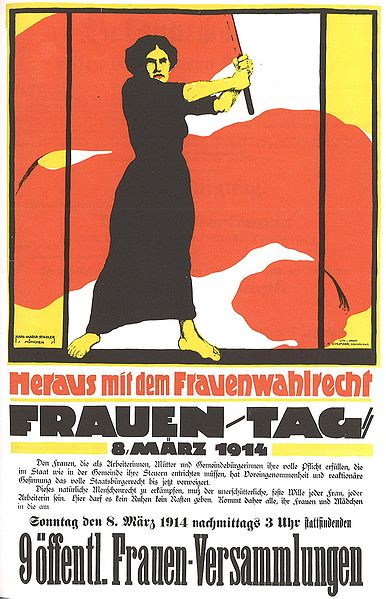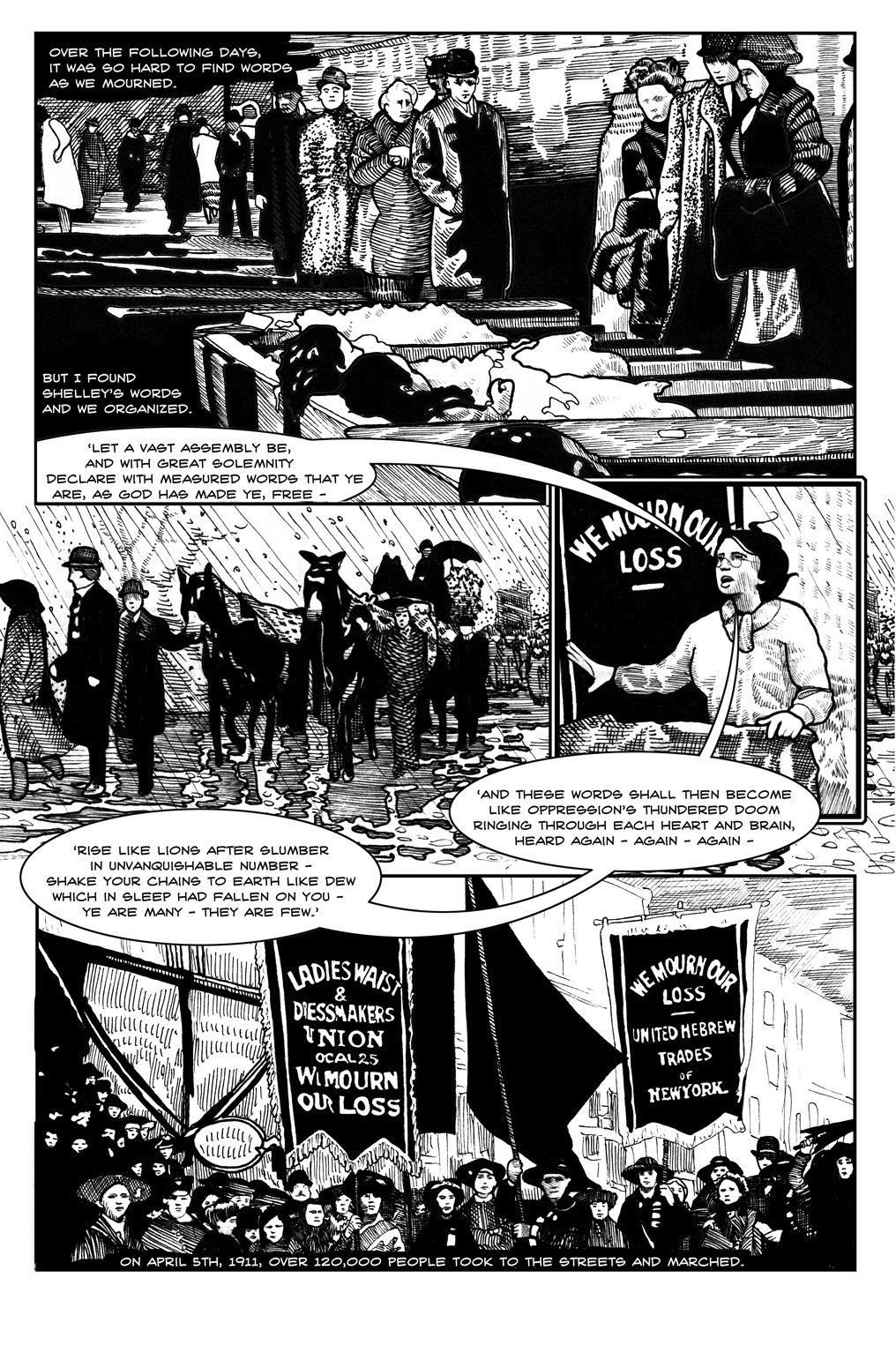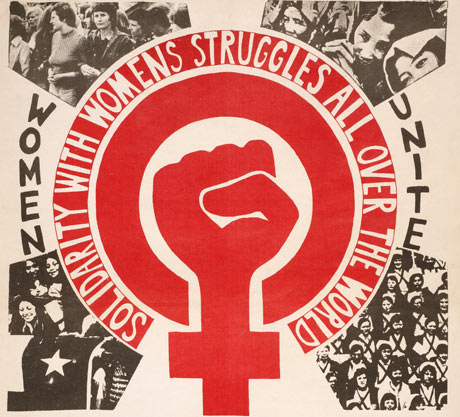Women against inequality: A Verso reading list for International Women's Day.


"What is 'Women's Day'? Is it really necessary?" Alexandra Kollontai asked readers of the Russian journal Pravda a centenary ago. "On Women's Day," she wrote, "the organised demonstrate against their lack of rights."
Prior to its revival by feminist movements in the 70's and its adoption by the UN in 1977, 'Woman's Day' day was first recognized in the United States in 1910 following the thirteen week long strike of 20,000 female garment workers. International Women's Day was then recognized by the second Conference of Socialist Women as a means to express internationalism in their struggle. Four years later on this day in Russia, bread riots led by women fed directly into the first moments of the 1917 revolution.
Now, in former Soviet Bloc nations International Women's Day has struggled to cut its negative ties to the memory of Stalinist bureaucracy, whereas in the West it has lost much of its connection with the struggles of women against systematic exploitation.
The following is our reading list for International Women's Day, dedicated to the struggle of women against inequality.
Dreamers of a New Day: Women Who Invented the Twentieth Century by Sheila Rowbotham. From the 1880s to the 1920s, a profound social awakening among women extended the possibilities of change far beyond the struggle for the vote. This book is an acclaimed exploration of these women who revolutionized American and British life.
Fortunes of Feminism: From State-Managed Capitalism to Neoliberal Crisis by Nancy Fraser charts the history of women's liberation and calls for a revitalized feminism.
Invisibility Blues: From Pop to Theory by Michele Wallace was first published in 1990 and widely regarded as a landmark in the history of black feminism.
Women's Work, Men's Property: The Origins of Gender and Class edited by Stephanie Coontz and Peta Henderson is an important book from Verso's history that explores the sociohistorical roots of gender inequality.
A Vindication of the Rights of Woman by Mary Wollstonecraft remains one of history's most important and elegant broadsides against sexual oppression.
Sexuality in the Field of Vision by Jacqueline Rose is a brilliantly original exploration of the interface between feminism, psychoanalysis, semiotics and film theory.

The Letters of Rosa Luxemburg by Rosa Luxemburg are letters from the heroic German revolutionary to her comrades, friends and lovers. Her political concerns are revealed alongside her personal struggles within a socialist movement that was often hostile to independently minded women. The book is part of an ongoing series on Rosa Luxemburg.
Women's Oppression Today: The Marxist/Feminist Encounter by Michèle Barrett is a classic text in the debate about Marxism and feminism that has been reprinted many times since its first publication in 1980.
Precarious Life: The Powers of Mourning and Violence by Judith Butler responds to the US's perpetual war and explores how mourning could inspire solidarity.
Female Sexualization: A Collective Work of Memory by Frigga Haug is an enlightening perspective on femininity and sexualization.
Family Secrets: Acts of Memory and Imagination by Annette Kuhn "Reshapes the relations between feminism and cultural studies."—Meaghan Morris
Gender Equality: Transforming Family Divisions of Labor edited by Janet C. Gornick and Marcia K. Meyers is an urgent call for real-world solutions to gender inequality.
Reversed Realities: Gender Hierarchies in Development Thought by Naila Kabeer asks why development organizations are failing women in poverty.
Red Velvet Seat: Women's Writings on the First Fifty Years of Cinema edited by Antonia Lant is a compendious anthology of women's writing on film.
Integrating Gender: Women, Law and Politics in the European Union by Catherine Hoskyns is a feminist perspective on the European Union's operations and equality policies.
Black Macho and the Myth of the Superwoman by Michele Wallace was originally published in 1978, causing a storm of controversy as Wallace blasted the masculinist bias of the black politics that emerged from the sixties.
Women's Pictures: Feminism and Cinema by Annette Kuhn, "A lucid examination of film theory and feminism" – Mary Desjardins, On Film

Masks of Anarchy: The Story of a Radical Poem, from Percy Shelley to the Triangle Factory Fire by Michael Demson, illustrated by Summer McClinton is a graphic history of a poem that became aninspiration to immigrant, largley female, workers in New York
I, Rigoberta Menchú: An Indian Woman in Guatemala by Rigoberta Menchú is the best-selling account of the life of Latin American peasant woman and winner of the Nobel Peace Prize.
Who Is Rigoberta Menchú? by Greg Grandin, a leading historian who takes on the lies told about Rigoberta Menchú's bestselling memoir.
Lust For Life: On the Writings of Kathy Acker edited by Carla Harryman, Avital Ronell, and Amy Scholder in which scholars and artists reflect on the transgressive twentieth-century literary icon.
Scum Manifesto by Valerie Solanas and introduction by Avital Ronell who reconsiders Solanas in light of her social milieu.
The Power to Choose: Bangladeshi Women and Labour Market Decisions in London and Dhaka by Naila Kabeer is a powerful analysis of how globalization is affecting the lives of women at work.
Machos, Mistresses, Madonnas: Contesting the Power of Latin American Gender Imagery Edited by Marit Melhuus and Kristi Anne Stølen paints a true picture of gender relations in Latin America.

